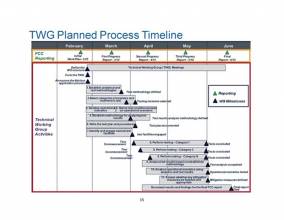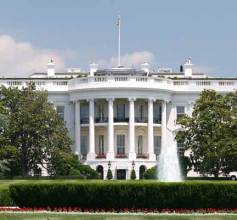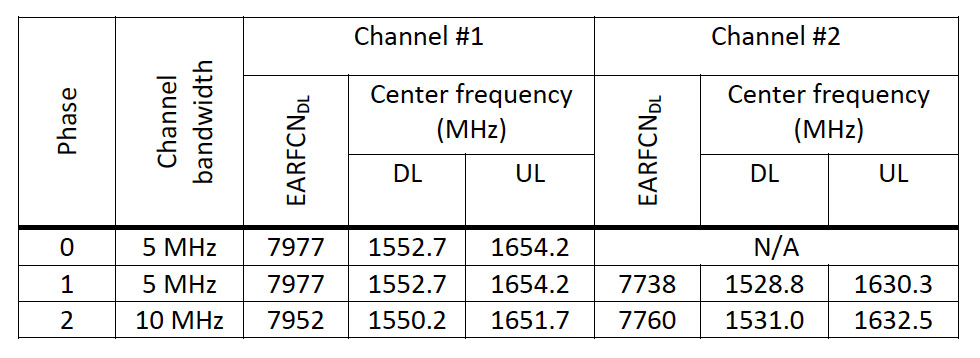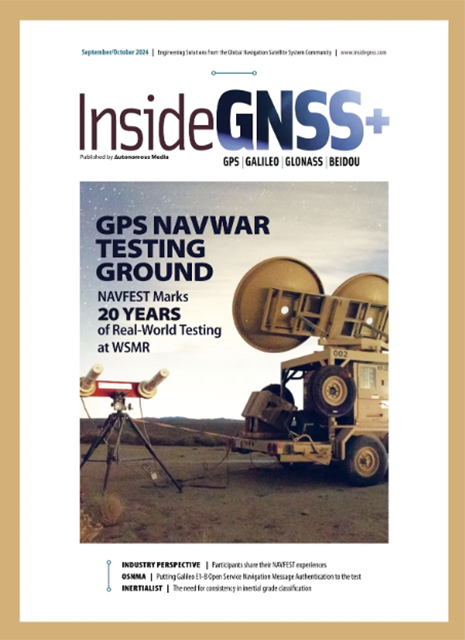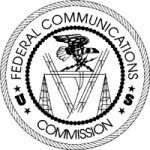
[Updated August 3, 2011] Having apparently exhausted themselves debating a subject that a majority of Americans considered a non-priority — raising the debt ceiling — the U.S. Congress adjourned for summer recess on August 1, automatically cancelling two House hearings (discussed later in this article) that had been scheduled on the LightSquared/GPS interference issue. Although both houses of Congress will hold pro forma sessions in order to prevent President Obama from making so-called recess executive appointments, they are not expected to be back in action until after Labor Day — by which time the FCC may have already made a decision on the issue.
* * * * * * *
Despite evidence of the likelihood for harmful interference to nearby GPS and other GNSS L1 signals, the Federal Communications Commission (FCC) appears likely to push ahead with approval of a revised LightSquared Subsidiary plan to build a dense U.S. network of high-powered ground transmitters for wireless broadband service.
As clock runs down for filing comments on LightSquared’s revised request to begin service using a 10-megahertz chunk in the lower portion of the 1525-1559 MHz band, participants and observers of the controversial plan say that the FCC appears to be trying to issue a decision by Labor Day or mid-September at the latest. The schedule appears to be driven more by LightSquared’s need to meet financial milestones than FCC processes for due diligence, they say.
Yesterday (July 28, 2011), LightSquared and Sprint Nextel announced that they have entered into a 15-year agreement that includes spectrum hosting and network services, 4G wholesale, and 3G roaming. Under the agreement, LightSquared will pay Sprint approximately $9 billion to deploy and operate a nationwide LTE network that hosts L-band spectrum licensed to or available to LightSquared. But the company and its hedge fund backer need FCC approval to attract investors to the initiative.
As a wholesale-only carrier with separate core network operations, LightSquared can sell its 4G broadband capacity produced through this spectrum-hosting relationship to Sprint, other wireless carriers, and retail partners. This agreement is expected to lower network capital and operating expenses for LightSquared by more than $13 billion over the next eight years in comparison with the cost of a stand-alone network build.
The deal is not a slam-dunk for LightSquared, however. In an article in today’s Wall Street Journal, Sprint CEO Dan Hesse noted that Sprint is a provider of GPS services and "will not turn on the [L-band transmitter] network until this [GPS interference] issue is resolved. According to the Journal article, if LightSquared doesn’t resolve the GPS issues by the end of 2011, Sprint will only have to return payments that weren’t contractually earned.
Meanwhile, GPS advocates are pushing for additional testing of the so-called “10MHz-low” plan, which was not the focus of the recent Technical Working Group (TWG) evaluation of the previous LightSquared proposal for beginning with two five-megahertz transmissions in the upper portion of its spectrum. LightSquared still wants to move to additional 10-megahertz transmissions in the upper portion of the band (10MHz-high) in 2014.
Acting on a recommendation of the National Space-Based Positioning, Navigation, and Timing (PNT) Executive Committee, the National Coordination Office (NCO) for PNT has proposed that another six months be allocated for those tests, according to NCO director Tony Russo, during which time LightSquared should not go forward with commercial operations. Russo says the NCO staff have met with FCC engineers this week to discuss the TWG test results and the need for additional testing.
Even the 10MHz-low plan would not solve serious problems caused by LightSquared transmissions for users of an estimated 500,000 high-precision GPS receivers in the United States. These receivers track a wider band of spectrum than most low-cost GPS receivers and are, as a result, more sensitive to interference from LightSquared transmissions.
High-precision applications include such activities as large-scale farming, construction, surveying, time synchronization, crustal monitoring, and military operations. Numerous submissions from agriculture-related organizations are among those flooding into the FCC’s LightSquared comments database.
Additionally, commercial space-based augmentation systems such as Navcom Technology’s StarFire and Trimble’s OmniSTAR differential correction services use space-to-Earth communication channels within the 1525-1559 MHz band itself, including links provided by LightSquared, and are thus doubly vulnerable.
The NCO has requested assessments by federal agencies that use or oversee applications of GPS by user communities of the likely effects of LightSquared interference on their agencies and constituencies. A response to NCO’s request by the Federal Aviation Administration quantified the costs at $70+ billion with the risk of nearly 800 deaths caused by delays to improvements planned for U.S. civil aviation.
Back to Capitol Hill
The LightSquared/GPS controversy has drawn increasing attention from Congress, with two U.S. House of Representatives committees scheduling additional hearings next week.
The House Committee on Science, Space, and Technology has scheduled a hearing on “Impacts of the LightSquared Network” before the full committee from 10:00 a.m. to noon on August 3.
Witnesses include Mary Glackin, deputy under secretary, National Oceanic and Atmospheric Administration; Badri Younes, deputy associate administrator for space communications and navigation, National Aeronautics and Space Administration; Peter Appel, administrator, Research and Innovative Technology Administration, Department of Transportation; David Applegate, associate director, Natural Hazards branch, U.S. Geological Survey; Scott Pace, director, Space Policy Institute, George Washington University.
Also on August 3, the House Armed Services Committee, Subcommittee on Strategic Forces, will receive testimony on sustaining GPS for national security. Witnesses include General William L. Shelton, commander, U.S. Air Force Space Command; Teresa M. Takai, chief information officer, U.S. Department of Defense; Julius Knapp, chief engineer, FCC Office of Engineering and Technology; Karl Nebbia, associate administrator, Office of Spectrum Management, National Telecommunications and Information Administration, U.S. Department of Commerce.
Russo, the NCO director, will also testify at both hearings.
Here Comes the Judge
Regardless of how FCC rules in the matter, most observers believe that the issue inevitably will end up in the courts. If, contrary to all appearances, the agency prevents LightSquared from proceeding with its current plan, the company — whose primary backer Phil Falcone has gambled most of the assets of the Harbinger hedge fund he controls on the LightSquared venture — would probably file suit.
Conversely, GPS advocates believe that the FCC violated its own procedures by allowing a substantive change in frequency allocation to occur at the bureau level rather before the full commission. They believe that political influences, driven by Harbinger’s billions and the president’s desire to lift up expansion of wireless broadband as a feature of his re-election campaign, have shaped not merely the FCC decisions on the issue but the agency’s processes themselves.
Indeed, some Washington sources suggest that last December FCC Chairman Julius Genachowski actually wanted to issue an order allowing LightSquared to proceed with building its network without any further consideration of the GPS interference issues but was deterred from that course by agency staff, who believe that FCC rules prevented such a precipitous course. Instead, the agency granted a conditional waiver of limits on LightSquared’s transmitters pending the outcome of tests conducted by a working group that showed widespread interference to GPS receivers.
Genachowski, a former venture capitalist who acted as a financial “bundler” for Obama’s 2008 campaign, controls the agenda and has broad power to determine which issues that come before the full commission.
The commission already faces criticism for members’ ruling on issues in which they have a present or future interest. In May, FCC Commissioner Meredith Baker announced she was leaving June 3 to become the senior vice-president of government affairs for NBCUniversal after she had recently voted in favor of an NBC/Comcast merger.
Today (July 29, 2011) the Washington Post tech blogger Cecilia Kang reported claims by Patrick Comack, senior telecom equities analyst at Zachary Investment Research, “that staff in the [FCC] international bureau told him they did not see a waiver that was approved Jan. 26 by bureau chief Mindel de la Torre. The staff would typically work on such a waiver pertaining to satellite spectrum licenses.”
As quoted by Kang, an FCC spokeswoman rejected the Comack’s claim, saying that the agency would “continue to run an open, transparent and inclusive process to address interference issues around LightSquared’s proposal. . . .” but then appeared to telegraph a foregone FCC conclusion by adding that the company’s project “has the potential to create thousands of jobs and generate billions of dollars of economic investment.”

